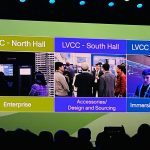The future of learning is being rewritten, and this year’s EdTech Week offered a glimpse of its first draft. Across dozens of sessions, one message stood out: education is no longer just about classrooms and content. It’s about connection, adaptability, and the responsible use of AI.
Centered around three defining themes–AI in Education, Career-Connected Learning, and How EdTech Stakeholders Buy–the event brought together educators, innovators, and policymakers to explore how technology is reshaping the way we teach, learn, and work.
AI in Education: From Innovation to Intention
Nearly 60% of sessions focused on artificial intelligence, underscoring its expanding role in education. Conversations ranged from AI literacy and classroom applications to workforce transformation, policy impacts, and the deployment of AI-powered tools across K–12 and higher education. Yet the tone wasn’t only about innovation, it was about using it with purpose.
Despite valid concerns around AI integration—spanning job market disruption, automation anxiety, and the need for responsible AI safeguards—the consensus was clear: the challenge lies not in the technology itself, but in building the culture around it. Teachers, students, and administrators must feel both invested in and confident about using these tools.
This also means returning to the basics in the AI era, reinforcing foundational human skills such as emotional fluency, critical thinking, communication, collaboration, and empathy, which are best cultivated through experiential learning, such as internships and apprenticeships.
Educators at EdTech Week emphasized that teachers must remain at the heart of digital transformation. The future “operating system” for learning will blend curriculum, pedagogy, and technology, generating real-time insights that help teachers guide each student’s next step.
Some speakers proposed reframing personalization: rather than focusing solely on individualized student content, AI could personalize resources for teachers, helping them teach more effectively while preserving the human connection. The takeaway? AI literacy for educators is fundamental. Understanding why a system recommends something is just as important as knowing how to use it.
Career-Connected Learning: Aligning Education with Reality
Many speakers highlighted a systemic misalignment between what learners need and how institutions currently operate, emphasizing the urgency of reconnecting education with real workforce demands. Students increasingly seek hands-on experience long before graduation, an essential foundation for collaboration, communication, and problem-solving. One example of this shift came from NYC Public Schools’ pilot program, built around five pillars of integrated learning:
- Career-connected learning instruction
- Work-based learning opportunities
- Personalized guidance and advising
- Financial literacy education
- Early access to college credits and credentials
However, credential value remains uneven. Data from the Burning Glass Institute revealed that 82% of career and technical credentials offer little or no return on investment. The new Credential Value Index aims to address this by helping learners and institutions identify which certifications truly yield value.
Looking ahead, the concept of transferable credentials—where, for instance, a Google certificate could also be recognized by Microsoft—illustrates a more flexible, learner-centered vision of career readiness. As this vision takes shape, collaboration and trust among institutions, employers, and education providers will be crucial for success.
How EdTech Partnerships Are Built (and Bought)
When it comes to EdTech adoption, relationships are part of the currency. Decision-makers are gradually skeptical of overpromises and underdelivery. The strongest partnerships are grounded in authentic engagement, characterized by face-to-face interaction, thoughtful pilots, and long-term collaboration. Speakers agreed on several key takeaways for vendors seeking meaningful impact:
- Build credibility through proven pilots and case studies.
- Personalize outreach, avoid one-size-fits-all campaigns.
- Partner with educators and students to design the right products.
- Use short, targeted video content (2–3 minutes) to clearly communicate value.
In the K–12 public space, strong government relations are equally vital. Building trust at state and local levels ensures access and continuity amid evolving policy landscapes.
Cohesion and Equity: A Call for Collaboration
Ultimately, “cohesion” emerged as a defining concept for the future of education, where curriculum, pedagogy, and technology move forward together, defined by teachers, students, and researchers alike.
“AI is playing an important part in the future of education, and technology will serve as its essential foundation. Meaningful progress requires every stakeholder to work collaboratively to address persistent challenges and systemic gaps. What stood out as truly inspiring was the collective enthusiasm and commitment to honest dialogue and solutions with lasting impact. By supporting the development of critical components within the emerging education ecosystem, we are playing a vital role in shaping a system designed to achieve the outcomes we all aspire to.”
—Virgil Olteanu, Delivery Director, Education AI Studio at Globant.
Still, leaders acknowledged ongoing challenges: limited funding, policy uncertainty, and the pending impact of the One Big Beautiful Bill (OB3) on federal education support. Yet amid the uncertainty, a shared belief resonated: when used responsibly and collaboratively, technology sharpens, not replaces, the human side of learning.
The Future of Learning Is Human, and Hybrid
From AI integration to career pathways, EdTech Week 2025 underscored a compelling truth: the future of education isn’t about replacing teachers with technology. It’s about empowering them, and every learner, with the right tools, data, and opportunities to thrive.
At Globant, we believe the next chapter of education will be human-led, AI-powered, and deeply connected to the world beyond the classroom. Discover how our Education AI Studio enables institutions and EdTech leaders to design learning experiences tailored for the future.



